
Rotuma Island: A Hidden Gem in Fiji
Nestled in the heart of the South Pacific, Rotuma Island is a hidden treasure waiting to be discovered. Known for its serene beauty and unspoiled landscapes, this island offers a unique escape from the hustle and bustle of everyday life. With its pristine beaches, crystal-clear waters, and vibrant coral reefs, Rotuma is a paradise for nature lovers and adventure seekers alike. The island's rich cultural heritage is another highlight. Rotuma is home to a small but proud community that has preserved its traditions and customs over centuries. Visitors can immerse themselves in the local way of life by participating in traditional ceremonies, tasting delicious Rotuman cuisine, and exploring ancient historical sites. The island's warm and welcoming people make every visitor feel like a cherished guest. For those seeking adventure, Rotuma does not disappoint. The island offers excellent opportunities for snorkeling, diving, and hiking. Its lush, green interior is perfect for exploration, with trails leading to breathtaking viewpoints and hidden waterfalls. Whether you're looking to relax on a secluded beach or embark on an exciting adventure, Rotuma Island promises an unforgettable experience.
Local tips in Rotuma Island
- Respect local customs and traditions; always ask for permission before taking photos of people or sacred sites.
- Bring cash, as there are no ATMs on the island, and credit cards are not widely accepted.
- Don't miss the chance to try 'Fekei,' a traditional Rotuman dessert made from taro and coconut.
- Pack reef-safe sunscreen to protect the coral reefs while you enjoy snorkeling and diving.
- Make travel arrangements well in advance, as flights to Rotuma are limited and can fill up quickly.
Rotuma Island: A Hidden Gem in Fiji
Nestled in the heart of the South Pacific, Rotuma Island is a hidden treasure waiting to be discovered. Known for its serene beauty and unspoiled landscapes, this island offers a unique escape from the hustle and bustle of everyday life. With its pristine beaches, crystal-clear waters, and vibrant coral reefs, Rotuma is a paradise for nature lovers and adventure seekers alike. The island's rich cultural heritage is another highlight. Rotuma is home to a small but proud community that has preserved its traditions and customs over centuries. Visitors can immerse themselves in the local way of life by participating in traditional ceremonies, tasting delicious Rotuman cuisine, and exploring ancient historical sites. The island's warm and welcoming people make every visitor feel like a cherished guest. For those seeking adventure, Rotuma does not disappoint. The island offers excellent opportunities for snorkeling, diving, and hiking. Its lush, green interior is perfect for exploration, with trails leading to breathtaking viewpoints and hidden waterfalls. Whether you're looking to relax on a secluded beach or embark on an exciting adventure, Rotuma Island promises an unforgettable experience.
When is the best time to go to Rotuma Island?
Iconic landmarks you can’t miss
Colo-I-Suva Forest Park
Discover the lush landscapes and vibrant wildlife of Colo-I-Suva Forest Park, a must-visit national park in Fiji for nature enthusiasts.
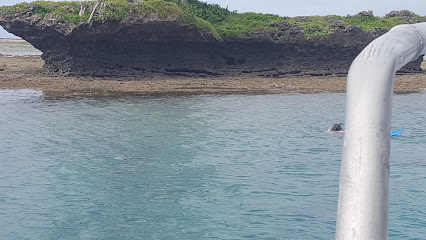
Sri Siva Subramaniya Swami Temple
Explore the serene beauty and intricate architecture of Sri Siva Subramaniya Swami Temple in Nadi, a vibrant hub of Hindu culture in Fiji.
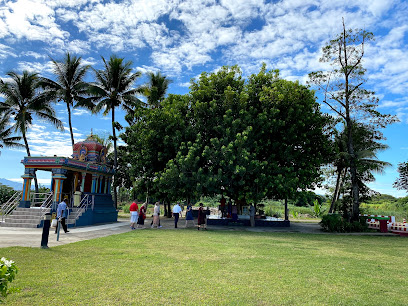
Koroyanitu National Park
Explore the breathtaking landscapes and rich biodiversity at Koroyanitu National Park, Fiji's hidden gem for nature lovers and adventurers.
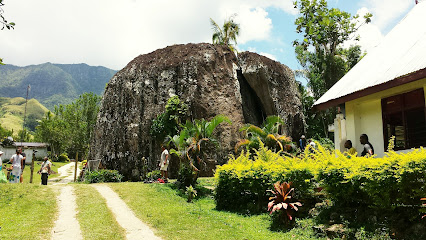
Mount Korobaba
Discover the breathtaking views and lush landscapes of Mount Korobaba, a premier hiking destination in Suva, Fiji, perfect for all adventure lovers.
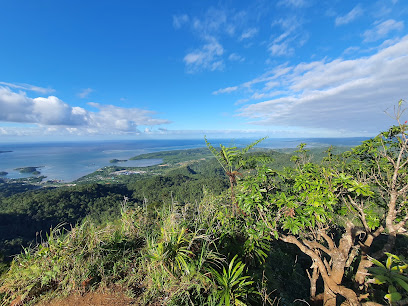
Tavuni Hill Fort
Explore the historic Tavuni Hill Fort in Naroro, a remarkable site that unveils the rich heritage and stunning vistas of Fiji's past.
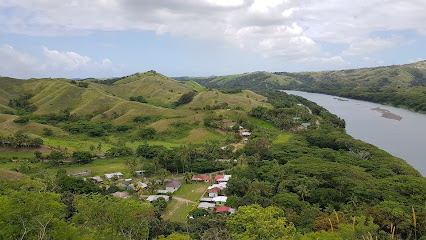
Kila World
Experience the magic of Kila World in Nabukavesi, Fiji—where adventure meets serenity in a breathtaking natural setting.
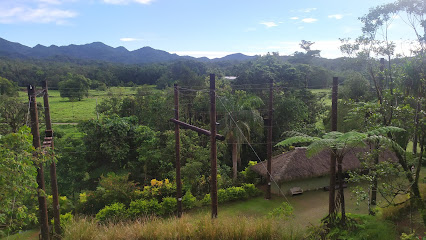
Naihehe Cave
Discover the enchanting Naihehe Cave in Fiji, a historical landmark rich in culture and natural beauty, perfect for adventurous travelers.
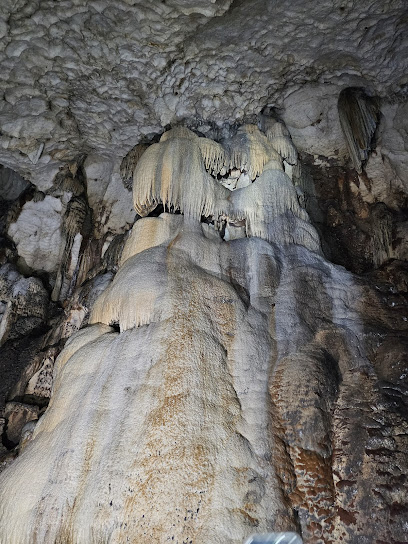
Levuka Historical Port Town
Experience the rich history and natural beauty of Levuka, Fiji's charming old capital, where heritage meets the sea.
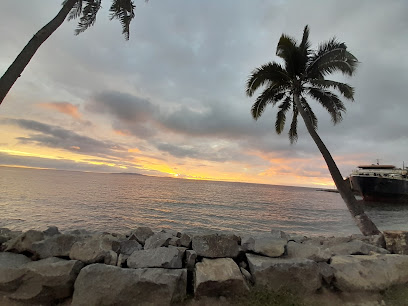
Essential places to dine
Maya Dhaba
Savor authentic Indian cuisine at Maya Dhaba, Suva's premier destination for flavorful dishes crafted from traditional recipes.
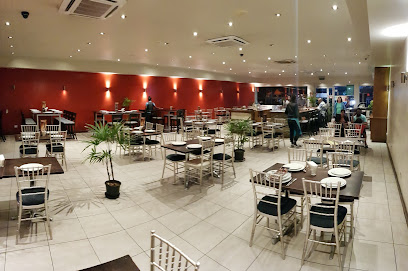
Swagat Wine and Dine
Experience authentic Indian flavors at Swagat Wine and Dine in Suva – where every dish tells a story.
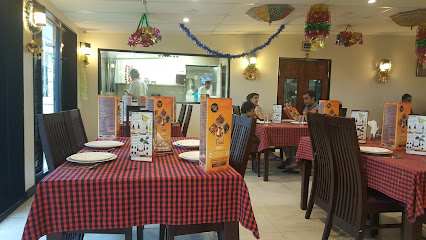
Daikoku
Discover authentic Japanese cuisine at Daikoku in Suva - where every dish tells a story.
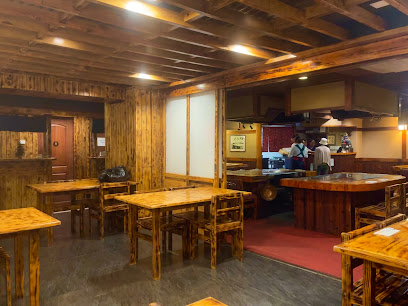
Eden Bistro & Bar (Fiji)
Discover the flavors of Fiji at Eden Bistro & Bar – where local ingredients meet global cuisine in an unforgettable dining experience.
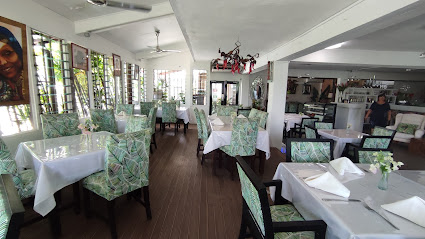
Vasaqa Fiji
Discover authentic Fijian flavors at Vasaqa Fiji, where culinary excellence meets vibrant hospitality in the heart of Nadi.
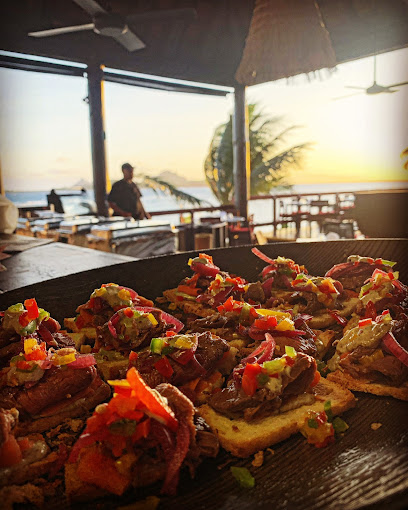
An Pho
Discover authentic Vietnamese cuisine at An Pho in Suva – a culinary journey full of flavor and warmth awaits every visitor.
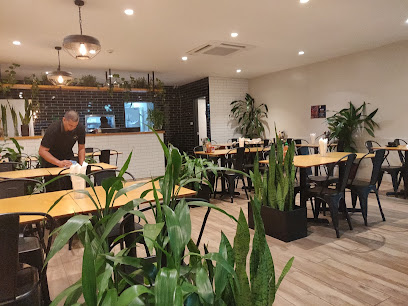
Crab Shack Fiji
Experience authentic Fijian flavors at Crab Shack Fiji in Korotogo – where fresh seafood meets stunning ocean views.
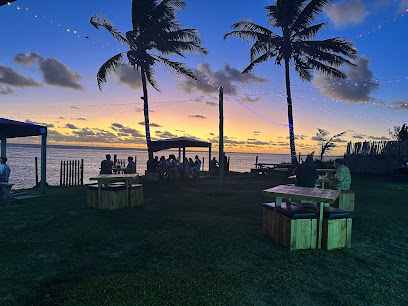
Olive Tree Wailoaloa
Experience authentic Mexican cuisine in the heart of Nadi at Olive Tree Wailoaloa—where flavor meets tropical paradise.
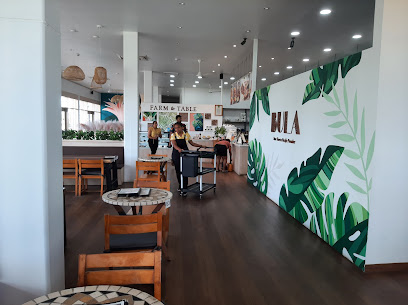
Sweet Laisa's Kitchen
Experience authentic Fijian cuisine at Sweet Laisa's Kitchen in Nadi - where every dish tells a story.
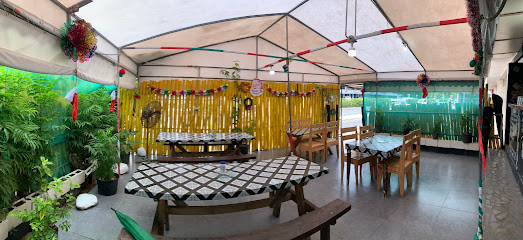
Kanalevu Kitchen
Savor authentic Fijian flavors at Kanalevu Kitchen – where family-friendly dining meets rich culinary heritage.
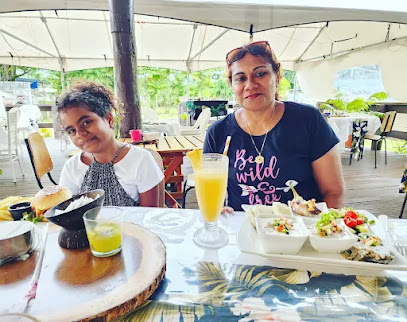
Ocean Terrace Restaurant at Bedarra Beach Inn
Discover exquisite dining at Ocean Terrace Restaurant on Coral Coast—where breathtaking views meet authentic Fijian flavors.
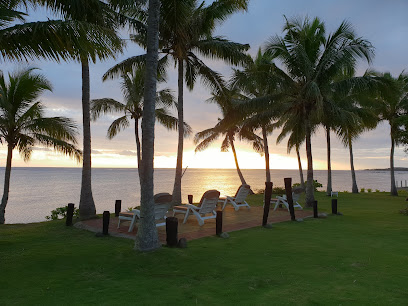
Wicked Walu
Discover Wicked Walu: An exquisite seafood dining experience in Fiji with breathtaking ocean views and warm hospitality.
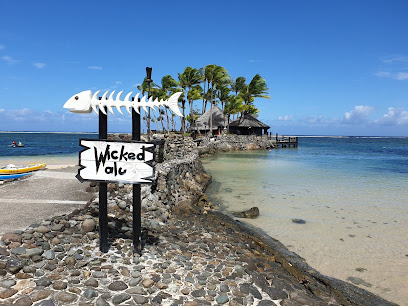
Tukuni Restaurant
Experience the rich flavors of Fiji at Tukuni Restaurant, where fresh seafood meets authentic island hospitality.
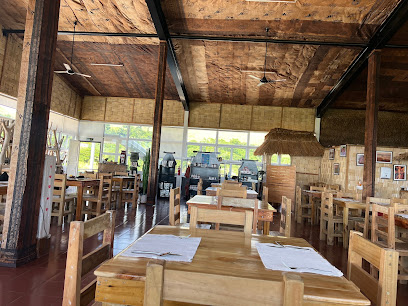
Top Dog Bar & Grill
Experience the vibrant flavors of Fiji at Top Dog Bar & Grill, where delicious tapas meet warm hospitality in the heart of Suva.
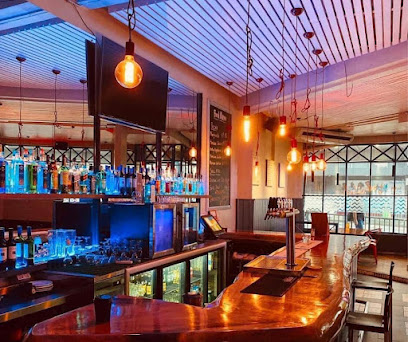
Markets, malls and hidden boutiques
Damodar City
Experience shopping, dining, and entertainment at Damodar City, Suva’s premier shopping destination that blends local charm with modern amenities.
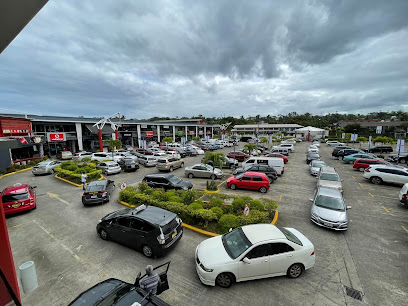
TappooCity Suva
Explore TappooCity Suva, Fiji's premier shopping mall, offering a diverse range of international brands and local delights in a vibrant atmosphere.
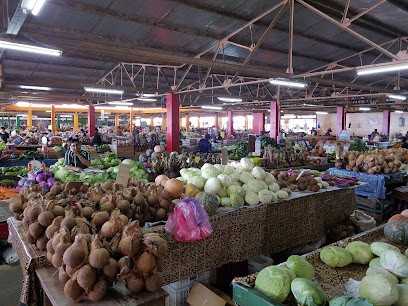
TappooCity Lautoka
Discover TappooCity Lautoka, a shopping mall in Fiji offering a blend of local culture, dining, and entertainment in a vibrant atmosphere.
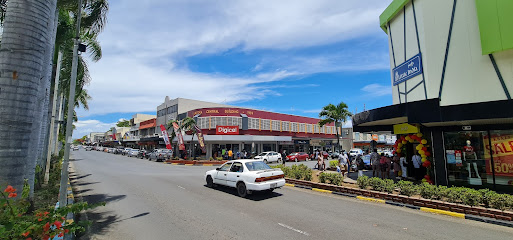
Suva Municipal Market
Discover the colorful and bustling heart of Fiji at Suva Municipal Market, where local culture and flavors come alive.
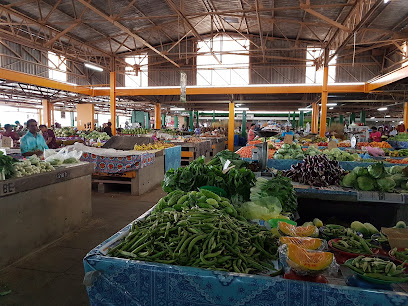
Sigatoka Market
Discover the vibrant local culture at Sigatoka Market - a bustling hub of fresh produce, handcrafted goods, and authentic Fijian flavors.
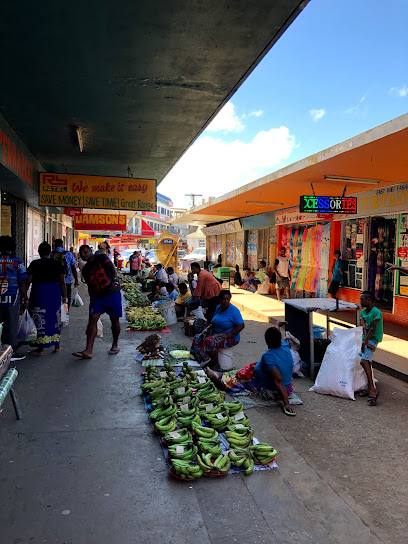
Lautoka Market
Explore Lautoka Market, a vibrant local hub offering fresh produce, unique crafts, and a taste of authentic Fijian culture in every visit.
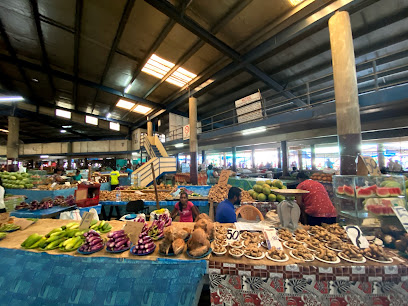
Suva Flea Market
Discover the heart of Suva at the bustling Flea Market, where local artisans and vibrant culture come together in a unique shopping experience.
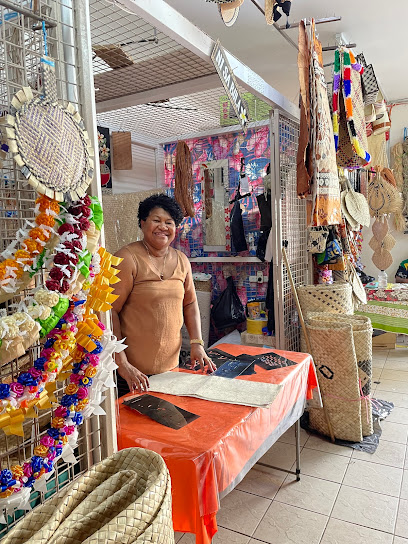
My Fiji Store
Discover authentic Fijian souvenirs, gifts, and delightful treats at My Fiji Store in Nadi, the perfect spot for tourists seeking local treasures.
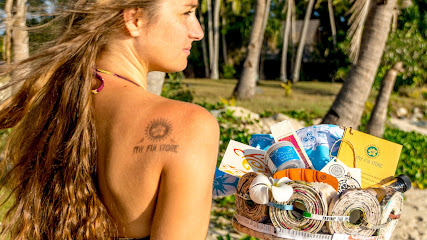
Municipal Handicraft Centre
Dive into the rich cultural tapestry of Fiji at the Municipal Handicraft Centre, where local artisans showcase exquisite handmade crafts and souvenirs.
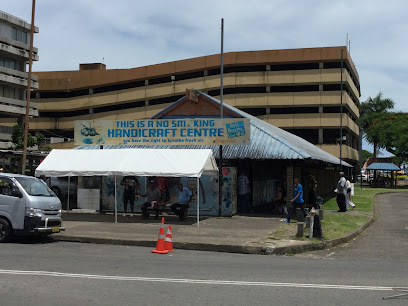
Namaka Lane
Explore Namaka Lane in Nadi, Fiji, for a unique selection of stylish footwear that complements your tropical adventure.
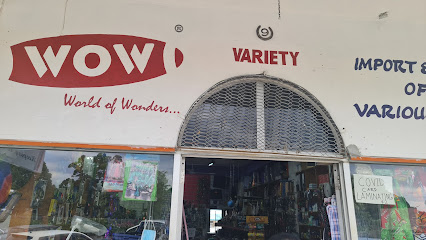
Lawai Pottery Village
Discover the artistry and cultural richness of Fiji at Lawai Pottery Village, where traditional craftsmanship meets breathtaking scenery.
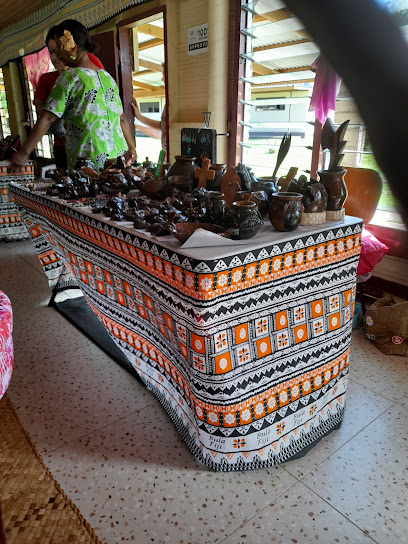
Suva Handicraft Market
Discover authentic Fijian crafts and vibrant culture at the Suva Handicraft Market, the ultimate destination for unique souvenirs and artisan treasures.
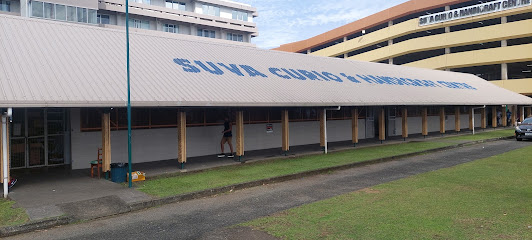
Votcity Flea Market
Experience the vibrant local culture at Votcity Flea Market, where unique crafts and delicious street food await.
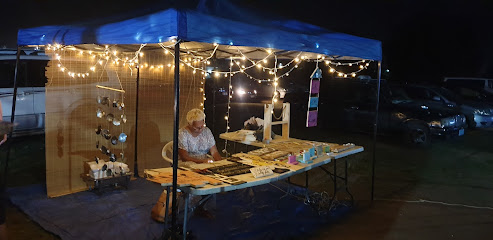
Tomasi Navulalevu
Experience the heart of Fiji at Tomasi Navulalevu, a grocery store offering local produce and a taste of vibrant Fijian culture.

Essential bars & hidden hideouts
OUTRIGGER Fiji Beach Resort
Discover the ultimate island retreat at Outrigger Fiji Beach Resort, where luxury meets the breathtaking beauty of Fiji.
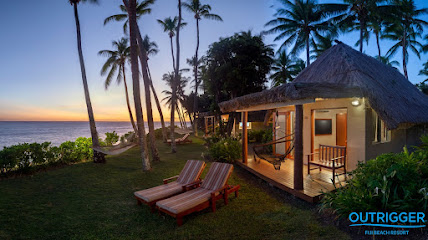
Grand Pacific Hotel
Experience luxury and history at the Grand Pacific Hotel in Suva, Fiji, where elegance meets breathtaking ocean views.
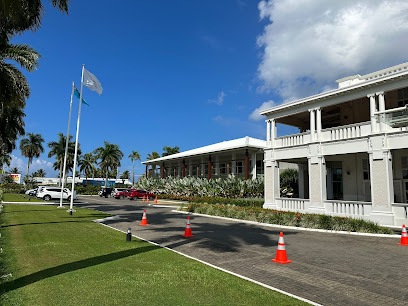
Tokatoka Resort
Experience the perfect blend of relaxation and adventure at Tokatoka Resort in Nadi, Fiji, surrounded by lush tropical gardens and vibrant local culture.

Tanoa Waterfront Hotel
Experience the beauty of Lautoka and enjoy luxurious comfort at Tanoa Waterfront Hotel, your perfect retreat in Fiji.
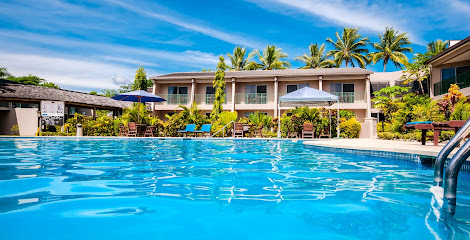
Novotel Suva Lami Bay
Discover tranquility at Novotel Suva Lami Bay, where luxury meets the breathtaking beauty of Fiji's coastlines.

Nalagi Hotel
Discover the perfect blend of luxury and convenience at Nalagi Hotel, your ideal base for exploring beautiful Nadi, Fiji.

Tanoa Plaza Hotel
Experience comfort and hospitality at Tanoa Plaza Hotel, your gateway to exploring Suva's vibrant culture and attractions.

Tanoa Skylodge
Discover the perfect blend of comfort and luxury at Tanoa Skylodge, your ideal retreat in Nadi, Fiji.

Capricorn Hotel Fiji
Experience the charm of Fiji at Capricorn Hotel, your gateway to adventure and relaxation in beautiful Nadi.

Hexagon International Hotel, Villas & Spa
Discover comfort and relaxation at Hexagon International Hotel, Villas & Spa, your gateway to the beauty of Fiji.

Fiji Islands
Explore the breathtaking beauty and rich culture of the Fiji Islands, a tropical paradise offering adventures and relaxation in the heart of the South Pacific.
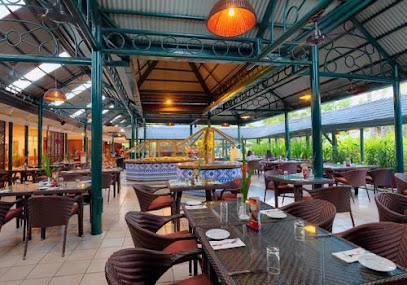
Tanoa Rakiraki Hotel
Discover tranquility at Tanoa Rakiraki Hotel, a serene escape in Fiji with stunning views, warm hospitality, and endless adventure opportunities.
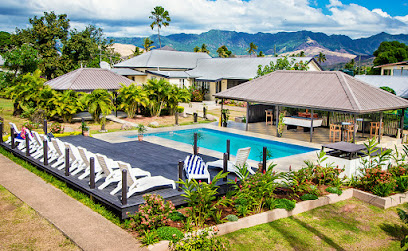
Bedarra Beach Inn
Experience the serene beauty of Fiji at Bedarra Beach Inn, where relaxation meets adventure on the stunning Coral Coast.

The Crow's Nest Resort
Experience the perfect blend of relaxation and adventure at The Crow's Nest Resort, nestled in the stunning landscapes of Fiji.

Local Phrases about Rotuma Island
-
- HelloMauri
[MOW-ree] - GoodbyeKia
[kee-ah] - YesIo
[ee-oh] - NoTe
[teh] - Please/You're welcomeFakapumue
[fah-kah-poo-mweh] - Thank youFakafetai
[fah-kah-fey-tie] - Excuse me/SorryFakamolemole
[fah-kah-mo-lay-mo-lay] - How are you?Fakamālō
[fah-kah-mah-loh] - Fine. And you?Kam rā
[kam rah] - Do you speak English?Fakaaglīsi
[fah-kah-ah-glee-see] - I don't understandKo te fālāgha
[koh teh fah-lah-nga]
- HelloMauri
-
- I'd like to see the menu, pleaseTe ma'i te māhaki, fakapumue
[teh mah-ee teh mah-hah-kee, fah-kah-poo-mweh] - I don't eat meatKo te 'ai la'u
[koh teh 'eye la-oo] - Cheers!Manuia!
[mah-nwee-ah] - I would like to pay, pleaseTe 'ofa te gali, fakapumue
[teh 'oh-fah teh ngah-lee, fah-kah-poo-mweh]
- I'd like to see the menu, pleaseTe ma'i te māhaki, fakapumue
-
- Help!Fesoasoani!
[fey-soh-ah-soh-ah-nee] - Go away!Alola!
[ah-loh-lah] - Call the Police!Fakapulese!
[fah-kah-poo-leh-seh] - Call a doctor!Fakafātai taubu!
[fah-kah-fah-tie tah-oo-boo] - I'm lostKo au te gāgala
[koh ow teh ngah-ngah-lah] - I'm illKo au te ma'i
[koh ow teh mah-ee]
- Help!Fesoasoani!
-
- I'd like to buy...Te 'ofa te 'ilo...
[teh 'oh-fah teh 'ee-loh] - I'm just lookingKo te 'ilo hā
[koh teh 'ee-loh hah] - How much is it?Ko e fakaga
[koh eh fah-kah-ngah] - That's too expensiveKo e fakamahaki
[koh eh fah-kah-mah-hah-kee] - Can you lower the price?Fakamālō te 'ilo te fakaga?
[fah-kah-mah-loh teh 'ee-loh teh fah-kah-ngah]
- I'd like to buy...Te 'ofa te 'ilo...
-
- What time is it?E ahu a te ta
[eh ah-hoo ah teh tah] - It's one o'clockKo e taha
[koh eh tah-hah] - Half past (10)Ko e hāfata
[koh eh hah-fah-tah] - MorningAtamai
[ah-tah-mah-ee] - AfternoonAfuamai
[ah-foo-ah-mah-ee] - EveningEfiafi
[eh-fee-ah-fee] - YesterdayFaraile
[fah-rye-lee] - TodayAe
[ah-eh] - TomorrowMahea
[mah-heh-ah] - 1Taha
[tah-hah] - 2Rua
[roo-ah] - 3Tolu
[toh-loo] - 4Fa
[fah] - 5Lima
[lee-mah] - 6Ono
[oh-noh] - 7Fitu
[fee-too] - 8Valu
[vah-loo] - 9Hiva
[hee-vah] - 10Ulu
[oo-loo]
- What time is it?E ahu a te ta
-
- Where's a/the...?I he...
[ee heh] - What's the address?Ko e leko
[koh eh leh-koh] - Can you show me (on the map)?Fakamālō te fakahāga mai (ki te mape)?
[fah-kah-mah-loh teh fah-kah-hah-ngah mah-ee (kee teh mah-peh)] - When's the next (bus)?Ahu a te fakataha (basi)?
[ah-hoo ah teh fah-kah-tah-hah (bah-see)] - A ticket (to ....)Te lipi (ki ....)
[teh lee-pee (kee)]
- Where's a/the...?I he...
History of Rotuma Island
-
Rotuma Island has been inhabited for over 3,000 years, with the earliest settlers believed to have arrived from the islands of Samoa and Tonga. These early inhabitants brought with them the Lapita culture, known for its distinctive pottery and navigational skills. The island's strategic location in the Pacific Ocean made it a crucial stopover for ancient voyagers.
-
The first European to sight Rotuma was the British naval officer Captain Edward Edwards in 1791. He was on a mission to capture the mutineers of HMS Bounty. Although he did not land on the island, his encounter marked the beginning of European awareness of Rotuma. Subsequent visits by whalers and traders increased its contact with the outside world.
-
In the mid-19th century, Christian missionaries arrived on Rotuma, leading to a significant cultural shift. The London Missionary Society established a presence on the island in 1841. Their influence led to the gradual conversion of the Rotuman people to Christianity, which brought about changes in social structures and traditional practices.
-
In 1881, Rotuma was ceded to Great Britain, making it a part of the British colony of Fiji. This cession was largely driven by the desire to protect the island from external threats and to gain economic advantages through trade. The Rotuman chiefs signed a deed of cession, and the island officially became a British colony on May 13, 1881.
-
During World War II, Rotuma served as a strategic location for the Allied forces. The island was used as a refueling station and supply base. While Rotuma did not see direct combat, the war brought increased military presence and infrastructure development, including an airstrip that remains in use today.
-
In recent decades, there has been a strong movement towards preserving and revitalizing Rotuman culture. Festivals, traditional ceremonies, and cultural education programs have been established to ensure that younger generations remain connected to their heritage. The Rotuman language, customs, and traditional crafts are actively promoted both on the island and within the global Rotuman diaspora.
-
Today, Rotuma is a unique blend of its rich historical past and modern influences. The island maintains its distinct identity within the broader context of Fiji. Its remote location and small population contribute to a close-knit community that values tradition and hospitality. Visitors to Rotuma are often struck by its natural beauty, vibrant culture, and the warmth of its people.
Rotuma Island Essentials
-
Rotuma Island is located approximately 465 kilometers north of Fiji's main island, Viti Levu. To reach Rotuma, you can take a domestic flight from Nadi or Suva to Rotuma Airport, which typically operates twice a week. Alternatively, there is a ferry service from Suva, but the journey can take up to two days and is subject to weather conditions. Booking in advance is highly recommended for both flights and ferry services.
-
Rotuma Island is relatively small, and many places can be reached by walking or biking. Local transportation includes minibuses and taxis, which are available for hire. While there is no formal public transportation system, locals are generally friendly and may offer rides. Renting a bicycle or scooter can also be a convenient option for exploring the island at your own pace.
-
The official currency on Rotuma Island is the Fijian Dollar (FJD). There are no ATMs on the island, so it is crucial to bring enough cash for your stay. Credit cards are rarely accepted, and most transactions are done in cash. It is advisable to exchange money in Suva or Nadi before traveling to Rotuma.
-
Rotuma Island is generally a very safe destination with low crime rates. However, it is always wise to take standard precautions such as not leaving valuables unattended and avoiding isolated areas at night. There are no specific high-crime areas targeting tourists, but maintaining vigilance is always a good practice.
-
In case of an emergency, you can contact the local police on Rotuma Island by dialing 911. Medical facilities are limited, but there is a small hospital in Ahau. It is crucial to have travel insurance that covers medical emergencies, including evacuation if necessary. For minor health issues, there are local pharmacies where you can purchase basic medicines.
-
Fashion: Do dress modestly, especially when visiting villages and religious sites. Avoid wearing overly revealing clothing. Religion: Do respect local customs and traditions. Always ask for permission before entering a church or participating in religious activities. Public Transport: Do be courteous and offer your seat to elders. Don’t play loud music or engage in disruptive behavior. Greetings: Do greet locals with a smile and a friendly 'Noa' (hello). A handshake is also acceptable. Eating & Drinking: Do try local foods and accept invitations to communal meals graciously. Don’t refuse food or drink offerings as it is considered impolite.
-
To experience Rotuma Island like a local, participate in traditional ceremonies and community events. Visit the local markets to buy fresh produce and handmade crafts. Engage with locals, who are often eager to share stories and traditions. Don't miss out on visiting the island's beautiful beaches and snorkeling spots, which offer a glimpse into the rich marine life. Learning a few basic phrases in the Rotuman language can also go a long way in building rapport with the residents.
Nearby Cities to Rotuma Island
-
Things To Do in Savusavu
-
Things To Do in Labasa
-
Things To Do in Ba
-
Things To Do in Levuka
-
Things To Do in Lautoka
-
Things To Do in Nausori
-
Things To Do in Suva
-
Things To Do in Nadi
-
Things To Do in Sigatoka
-
Things To Do in Kolovai
-
Things To Do in Vava'u
-
Things To Do in Ha'apai
-
Things To Do in Nuku'alofa
-
Things To Do in Pangai
-
Things To Do in Foa






